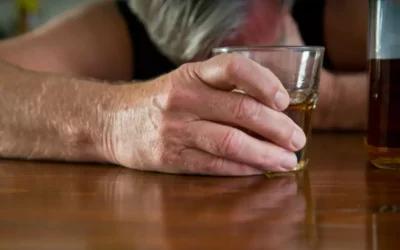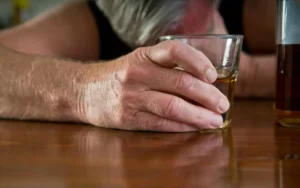
Also known as DTs, an estimated 2% of people with alcohol use disorder and less than 1% of the general population experience them. Or it could be that you’ve developed a physical health problem that you know is probably due to drinking and you want to make positive changes before things get worse. If you’re not experiencing negative health effects right now, it might be a good idea to learn about what could happen if you do keep drinking.
Better Sleep, Lower Blood Pressure
When you quit drinking, you’ll probably notice that the colds, flu, and other illnesses you always seem to catch happen less often. When you do get sick, you’ll probably feel like you recover more easily when you’re sober. When you stop drinking and start focusing on your health, you’ll likely start to feel better once your body is properly nourished. Cognitive, emotional, and sleep disturbances can occur at even moderate levels of drinking. As one drinks more over time, these disturbances get worse and become more difficult to reverse. Whenever possible, avoid people with whom you have unhealthy relations.
Utilizing Professional Resources During Overwhelming Situations
“Last week, I was on holiday. Several times, I being sober around drinkers thought, ‘Well, I will have a drink tonight,” and then I remembered the pain, and it kept me straight.” In the fourth week of abstinence from alcohol, the benefits keep piling up, according to the reports of those who remained sober for more than three weeks. “I am feeling better than I have in a while, a long while. I still have a few side effects like sleeplessness, anxiety, irritability, and I crave sweets all the time.” “Symptoms are reducing daily, and I have had the best two night’s sleep in a very long time. Just loving waking up without counting the hours to the next drink.” “Feeling better. Best night’s sleep in some time. Weird dreams but not too nasty and scary. Feel a little weak, but I did avoid food for about four days. Very reflective still.” Alcohol withdrawal symptoms begin to ease for some and just begin to get intense for others.
Get Professional Help
Alcohol consumption and abuse may cause you to look tired and puffy. Whether it’s for health, relationship, financial, or any number of reasons, consider creating a list on your phone of the reasons why you want to get and stay sober. Set a reminder once or twice a day to look through your list and share it with a supportive person in your life if you feel comfortable. Addiction Resource is an educational platform for sharing and disseminating information about addiction and substance abuse recovery centers.
If you find it difficult to make new, sober friends, try joining a support group. Spending more time with supportive loved ones and planning activities for the entire family can also help you develop a healthier lifestyle and avoid situations in which you would normally drink or use drugs. The end of a healthy relationship in long-term recovery can be dangerous as well. Breaking up can hurt so deeply that you feel you can’t bear it; having a drink or taking a drug seems to be the only way to stop the heartache. However, the pain is so much worse when it’s kept inside and remains unspoken; and while drinking or using may look like a way to find quick relief, you can’t actually escape this hurt. You only postpone the feelings and frequently the relapse brings more misery.

Alcohol Withdrawal and Detox Overview
- However, most people do not think about the impact of alcohol use on their financial well-being.
- While a sober life is undoubtedly better than a drunk one, that doesn’t mean it is an easy path to walk for someone suffering from alcoholism.
- Anyone in recovery, but especially those in the early stages of sobriety, should focus on staying busy, giving their life structure, and establishing routines that keep them safe.
- Stress from work, driving past a former hot spot, attending a party, looking at certain pictures can trigger cravings.
- Medication-Assisted Treatment (MAT) combines behavioral therapy with medications to treat substance use disorders.
They can help you get medical attention should you have severe symptoms. “I read other people’s withdrawal symptoms and how they seem to be over in a week, but mine are still hanging on … Just stomach problems and anxiety, mostly.” “I’m very irritated at times. I feel really good about my choice to quit drinking. I have headaches often and I have weird and bad dreams. Every night I dream that I’m having a drink again.”
Alcohol as Social Lubricant

Once you do return to work, it’s important to create a budget and take steps to safeguard yourself as work stress can be a relapse trigger. For example, you may have developed a co-dependent relationship, or a family member, friend, or employer may have been enabling you without even knowing it.

Behavioral Treatment

What they fail to realize is that whenever recovery becomes supported mainly by a human relationship, the recovery (and usually the relationship) are on thin ice. Rather than sinking into depression and self-blame, you can use recovery tools to put the setback into context. Did you know people change jobs an average of 12 times during their career? In January 2018, the Bureau of Labor Statistics reported that the median employee tenure was 4.3 years for men and 4.0 years for women. The very nature of employment is a roller coaster ride of ups and downs.
- You might also prefer to drink coffee, tea, a seltzer with fresh fruit, or a soda with fresh lemon or lime.
- If I’ve made a commitment that requires me to “show up” for a friend, I will do it even if I’m not feeling my best.
- People who have been drinking a lot of alcohol for a long time tend to get frequent infections like pneumonia and tuberculosis because their immune system has been worn down.
- It’s particularly effective for opioid and alcohol use disorders.
- Focus on enjoying non-drinking activities and order non-alcoholic beverages.
- In this dangerous form of health problem, the brain is completely unable to return to its normal chemistry, creating immeasurable health risks.
Such symptoms are often related to mood and may include irritability, anxiety, depression, sleep problems, and fatigue. Trying to scrape a living together by working several jobs, keeping up with friends and attempting to find a little time for ourselves can lead us to live functionally alcoholic lives. Thursday, as we all know, is the real start to the weekend and getting trashed with your squad on Friday is the norm. We are over-worked and underpaid millennials and we need to let off steam. But as we find ourselves crawling to yet another Sunday brunch, raging hangover in full swing, we might start to hear people say phrases like “booze fast” or “dry month” and they may even start to sound appealing.
